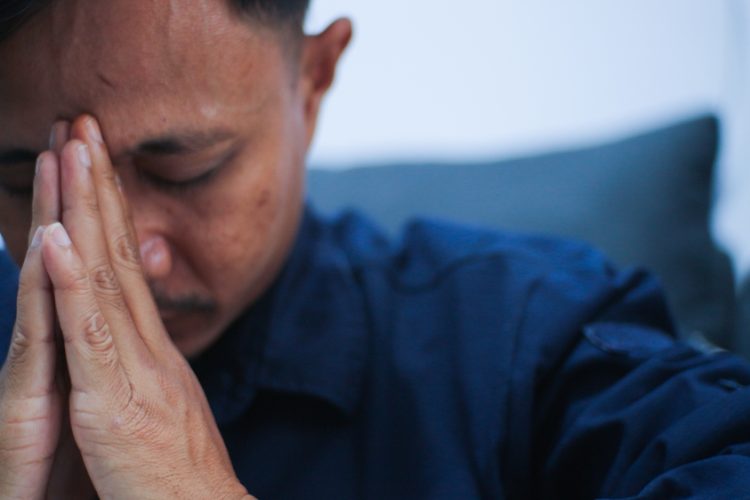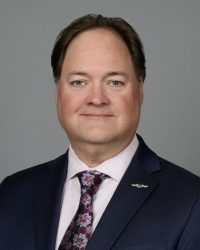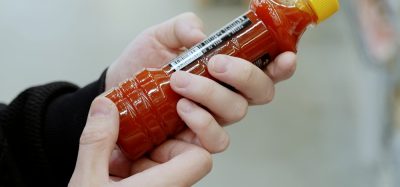Silent Enemies: Part 3 – No Easy Way Out
Posted: 16 October 2025 | Dr Darin Detwiler LP.D. | No comments yet
Responsibility is rarely convenient, whether underwater or in food safety. In Part 3 of Silent Enemies, Dr Darin Detwiler explores the cost of compromise and confronting hard choices.


A single decision defines responsibility. In food safety, as in submarines, choosing convenience over caution can cost far more than expected.
Join our free webinar: The science of next-gen ingredients: fermentation, formulation and function
The functional food market demands innovation, but formulation complexity is rising. This webinar focuses on how to effectively master fermentation-derived ingredients by exploring advanced characterisation techniques, clean-label strategies, and practical application tips.
Date: 11 Feb 2026 | Time: 15:00 GMT
Can’t attend live? No worries – register to receive the recording post-event.
There was a saying in the Navy: “Train like you fight.”
This meant every drill had to feel real: no shortcuts, no scripts, no skipping the hard parts.
We prepared for fires hot enough to melt steel, floods strong enough to crush lungs and reactor failures that demanded precision down to the last breath. Electrical faults, power loss, enemy attacks we might never face – we had to master them all anyway.
Join our free webinar: Rethinking Listeria monitoring: faster, simpler solutions for food safety & environmental testing
Discover how modern Listeria monitoring solutions can support faster, more reliable food and environmental testing, and help elevate your laboratory’s efficiency and confidence in results.
Date: 18 March 2026 | Time: 15:00 GMT
We trained for catastrophe: not when it was convenient, but until it became second nature. Because at the bottom of the ocean, the worst-case scenario does not send a warning. It simply arrives.
But there was one moment that never made it into the drills; one I still think about.
Williams, a friend onboard, had been talking for weeks about the vacation he was going to take with his wife and son. He had the whole trip planned: where they would stop, what beach they would visit, etc. The way he laughed when he talked about it was proud, relaxed, human.
Responsibility is not just pressure gauges and protocols. Responsibility is people.”
But just before his return from his leave back to the submarine, we got the news: a drunk driver had swerved off the road and killed his son – who was simply standing on the sidewalk.
Williams came back …different. He moved like a ghost. He barely spoke; did not react; just… nothing.
I remember watching him walk through the mess deck like a man half-there and not fully understanding what I was seeing.
Not yet
No drill could have prepared us for him. For that silence. And I did not fully understand it then.
Responsibility is not just pressure gauges and protocols. Responsibility is people. Responsibility is moments when the weight of doing the right thing means confronting grief, uncertainty, or failure – alone or as a team.
In today’s food industry, I see the same illusion of preparation. Some businesses conduct mock recalls like theatre – neatly planned, comfortably timed, always just a drill. But what good is a drill that pretends the worst cannot happen?
True recall readiness demands we imagine the phone call at 3 am:
- The child already sick
- The product already consumed
- The brand already on the evening news.
It demands we rehearse as if someone’s life, not our convenience, is on the line.
Just as we once sealed watertight doors and simulated radiation leaks, food safety leaders must build systems with no room for denial and no margin for wishful thinking. The goal should not be to simply pass the drill; it should be surviving the real thing.
Sometimes – especially during the simple moments – that is when our capabilities and judgment is tested.
Food safety leaders must build systems with no room for denial and no margin for wishful thinking.”
One of those times for me came in the early 1990s; it was a Sunday in port with the submarine tied up to the pier and running off of shore power, thus the reactor was shut down. These were the rare quiet days in our world, when the rhythm slowed and few crew were around all day.
We still had our 24-hour duty rotation, but the mood was lighter: a little maintenance, standing in-port watch, maybe a card game or a movie after dinner.
That morning, one of the sailors in my division reported for duty in a state that immediately set off concerns.
He wasn’t falling-down drunk. He wasn’t hostile. He was just… off; sleepy-eyed and with a slurred edge to his words. He asked if he could lie down for a few hours and then relieve the watch. In another world, maybe that would’ve been okay. But not in ours. Not with the responsibility we carried.
What if there was a fire? A flood? A sudden switch back to ship’s power?
I didn’t need to wait for a manual or a memo. My gut already knew what the rules confirmed: this wasn’t right. I made the call and I sent him home.
That decision resulted in my decision to stay longer into my day-off to cover his responsibilities, ensuring nothing fell through the cracks. Eventually, I handed things off and headed out, knowing the rest of the crew would manage short-staffed – a challenge, but not unheard of. Still, none of us had expected the day to unfold that way.
What came next was not easy either: I had to file a report and officially state that the sailor had shown up unfit. Not exactly a popular move and certainly not one that earned applause. But leadership is not about applause. Leadership is doing what must be done even when no one is watching; even when someone hopes you will look the other way.
It reminds me of something I saw again years later in food safety: doing the right thing is rarely convenient. But it is always necessary.
At that time, I consulted with a food production facility where a manager had faced a similar decision. A shipment of ingredients had arrived late and been left unrefrigerated for hours. The right action was to discard them – around €19,000-worth of product. Not pocket change. But the manager gambled. He ordered them used anyway, hoping no one would notice.
Someone did.
The product tested positive and a massive recall ensued. Fortunately, no illnesses were reported – but the brand took a serious hit. The final cost? Over €12 million.
That’s a 63,000 percent increase in cost – turning a €19,000 risk into a crisis 630 times more expensive than the original loss.
I have never forgotten what the plant’s CEO told me afterwards:
“We had to fire the manager. He is a great guy who has been with us for a long time, but what he did was inexcusable – not because of the financial loss, but worse: that risk to our customers was preventable.”
Across my careers – first in the Navy, then in food safety – I have seen this pattern repeat:
- On one side: the temptation to take it easy; to bend the rule; to save face or money or time
- On the other: the hard choice that protects the many, even if it costs a great deal
- What many fail to consider is the cost of doing nothing.
Sometimes doing what seems ‘kind’ is just another form of evasion.
Responsibility, like pressure, does not care about what is convenient. It cares about what is true.
No class or certificate ever taught us that. No drill fully prepared us for those moments. But we lived them.
And sometimes, we did not all make it through.
New to the series?
Read Silent Enemies Part 1 and Part 2.
Next week:
Silent Enemies Part 4 – The Sound of Silence
Become a member and be the first to hear about the next instalment of Darin’s blog series – only on New Food.
About the author:


A professor and the author of Food Safety: Past, Present, and Predictions, Dr. Detwiler is a frequent keynote speaker at international summits, industry forums, and government panels. His insights have helped shape food safety modernization efforts and regulatory reforms in countries around the world. He appears in the Emmy Award–winning Netflix documentary Poisoned: The Dirty Truth About Your Food, which continues to fuel global dialogue on food system accountability and consumer protection. His leadership and advocacy have made him a prominent figure in both public discourse and policy development.
With a career that bridges academia, industry, and international diplomacy, Dr. Detwiler is a trusted voice working to elevate food safety as a shared global responsibility—and to inspire a new era of integrity and transparency across the world’s food systems.
Resources
This series is a collaboration with PEP Nexus, the organisation founded by author Darin Detwiler. To access a glossary and other resources that provide additional context for this series, click the Silent Enemies icon below.
Related topics
Contaminants, Food Safety, Food Security, Health & Nutrition, Pathogens, Quality analysis & quality control (QA/QC), Rapid Detection, Regulation & Legislation, The consumer









